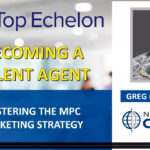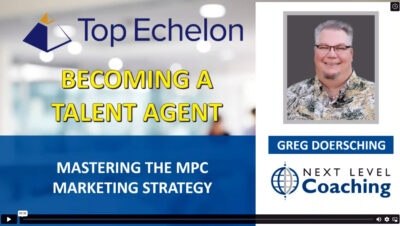In the wild and wacky world of recruitment, establishing and nurturing strong client relationships is the cornerstone of success. For executive recruiters and search consultants, mastering the art of client engagement or client relationship recruitment is not just about securing business. It’s about becoming indispensable partners in talent acquisition strategies.
In this blog post we shall explore how Customer Relationship Management systems (or a recruitment CRM) can be leveraged to optimize client relationships in recruitment. From understanding client management principles to implementing effective strategies and leveraging CRM functionalities, this guide equips professionals with the tools and insights necessary to excel in client engagement.
Understanding Client Relationship Recruitment
Client management in recruitment extends beyond the mere act of matching candidates with job vacancies; it encompasses a deep understanding of clients’ organizational cultures, business objectives, and talent acquisition needs. In essence, successful client management involves becoming a strategic partner who aligns recruitment efforts with the client’s overarching goals.
CRM systems serve as invaluable tools for client management by centralizing and organizing critical client information. From contact details and communication history to job specifications and feedback, CRM platforms provide a comprehensive overview of client interactions. By harnessing this data effectively, recruiters can tailor their approach, anticipate client needs, and deliver personalized service.
To truly understand client relationship recruitment, professionals must embrace the principles that we’ve outlined below.
Active Listening and Understanding: Effective client management begins with active listening and a genuine desire to understand the client’s needs, preferences, and pain points. By asking insightful questions and actively seeking feedback, recruiters can gain valuable insights that inform their approach to client engagement.
Transparency and Trust Building: Building trust is paramount in client relationships. Recruiters must prioritize transparency in their communication, manage expectations effectively, and demonstrate integrity in all interactions. Trust forms the foundation of long-term partnerships and fosters open communication between recruiters and clients.
Adaptability and Tailored Solutions: Each client is unique, with distinct requirements and preferences. Recruiters must adapt their approach to meet the specific needs of each client, offering tailored solutions that align with the client’s organizational culture and goals. By demonstrating flexibility and agility, recruiters can position themselves as invaluable partners in talent acquisition.
Strategies for Effective Client Relationship Recruitment
Effective client relationship recruitment is a multifaceted endeavor that requires a combination of proactive communication, personalized service offerings, and continuous value delivery. By implementing the strategies that we’ve outlined below, recruiters can strengthen their client relationships and differentiate themselves in the competitive recruitment landscape.
Regular Communication and Engagement: Maintaining regular communication with clients is essential for building rapport and demonstrating commitment. Whether through phone calls, emails, or in-person meetings, recruiters should proactively engage with clients to provide updates on recruitment progress, address concerns, and solicit feedback.
Personalized Service Offerings and Solutions: Tailoring recruitment solutions to meet the unique needs of each client is key to delivering exceptional service. Recruiters should take the time to understand the client’s organizational culture, hiring preferences, and talent requirements, and customize their approach accordingly. By offering personalized service, recruiters can demonstrate their value and strengthen client relationships.
Proactive Problem-Solving and Anticipating Needs: Anticipating clients’ future hiring needs and offering proactive solutions demonstrates foresight and adds value to the client relationship. Recruiters should stay abreast of industry trends, talent market dynamics, and emerging skill demands to provide strategic advice and support. By positioning themselves as trusted advisors, recruiters can become integral partners in their clients’ talent acquisition strategies.
Value-Added Services and Thought Leadership: Beyond traditional recruitment services, recruiters can offer value-added services such as talent market insights, salary benchmarking, and candidate profiling. By providing thought leadership content and sharing industry expertise, recruiters can position themselves as industry leaders and trusted advisors to their clients.
Feedback Mechanisms and Continuous Improvement: Soliciting feedback from clients on a regular basis is essential for assessing satisfaction levels and identifying areas for improvement. Recruiters should actively seek input from clients, listen attentively to their concerns, and take proactive steps to address any issues that arise. By demonstrating a commitment to continuous improvement, recruiters can strengthen client relationships and drive long-term success.
Leveraging CRM Functionalities for Client Success
CRM systems offer a plethora of functionalities designed to streamline operations, enhance collaboration, and improve client relationships. By harnessing these capabilities effectively, recruiters can optimize their workflows, increase productivity, and deliver exceptional service to clients. Key CRM functionalities for client relationship recruitment include everything that we’ve listed below.
Centralized Client Database and Information Management: Maintaining a centralized database of client information within the CRM system allows recruiters to access critical data quickly and efficiently. From contact details and communication history to job specifications and feedback, a centralized database provides a comprehensive overview of client interactions and requirements.
Task Automation and Workflow Optimization: Automating routine tasks such as candidate sourcing, screening, and follow-up using CRM workflow automation tools can significantly enhance efficiency and productivity. By reducing manual workload and streamlining processes, recruiters can focus their time and energy on high-value activities that drive client success.
Candidate Relationship Management (CRM): Managing candidate relationships effectively within the CRM system is crucial for maintaining a talent pool of qualified candidates. By nurturing candidate relationships and staying connected with top talent, recruiters can respond swiftly to client demands and provide timely solutions.
Integration with Communication Channels and Omnichannel Engagement: Integrating CRM systems with communication channels such as email, phone, and social media enables recruiters to engage with clients seamlessly across multiple channels. By capturing communication data within the CRM system, recruiters can track interactions, follow up on leads, and ensure consistent and personalized communication with clients.
Analytics and Reporting for Informed Decision-Making: Utilizing CRM analytics allows recruiters to gain insights into client behavior, engagement patterns, and recruitment trends. By analyzing data and generating reports, recruiters can identify opportunities for improvement, track performance metrics, and make data-driven decisions to optimize client relationships.
Case Studies: Real-World Success Stories
To illustrate the tangible benefits of mastering client relationships with CRM, let’s explore some real-world case studies. (And when we say real-world case studies, what we really mean is fake real-world case studies. Just in case you’re keeping score at home.)
Case Study 1: Enhancing Communication and Responsiveness
XYZ Recruitment Agency implemented a CRM system to enhance communication and responsiveness with clients. By centralizing client data and automating follow-up processes, the agency was able to improve response times and provide more personalized service. As a result, client satisfaction levels increased, leading to higher retention rates and repeat business.
Case Study 2: Proactive Candidate Management and Talent Acquisition
ABC Executive Search leveraged CRM functionalities to proactively manage candidate relationships and talent acquisition processes. By maintaining a talent pool of qualified candidates within the CRM system, the agency was able to respond quickly to client requests and fill positions more efficiently. This proactive approach not only improved client satisfaction but also enhanced the agency’s reputation as a trusted recruitment partner.
Case Study 3: Data-driven Decision Making and Strategic Partnerships
DEF Talent Solutions used CRM analytics to make data-driven decisions and optimize client relationships. By analyzing client engagement metrics and recruitment trends, the agency was able to identify areas for improvement and tailor its services to better meet client needs. This strategic approach resulted in higher client satisfaction scores and increased business opportunities, cementing the agency’s position as a strategic partner in talent acquisition.
Mastering client relationships in recruitment is a multifaceted endeavor that requires a deep understanding of client management principles, effective engagement strategies, and leveraging CRM functionalities. By actively listening to clients, delivering personalized service, and anticipating their needs, recruiters can build strong and lasting partnerships that drive mutual success.
Through the strategic use of a CRM system, recruiters can streamline operations, enhance collaboration, and deliver exceptional service to clients. By embracing CRM as a tool for client success, recruiters can differentiate themselves in the competitive recruitment landscape and become trusted advisors and partners in talent acquisition strategies.








